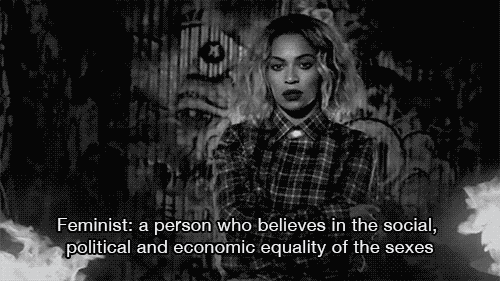
Despite her celebrated status within the writing community (honors include a MacArthur Fellowship and being one of The New Yorker's "20 Under 40"), most people hadn't heard of Chimamanda Ngozi Adichie until Beyoncé surprised the world with her visual album last week. A snippet of "We should all be feminists," Adichie's TED talk on feminism, was sampled on a song called "Flawless" in an attempt to finally pin down the definition of feminism. You might not think that this is necessary, or maybe you even believe that Beyoncé isn't one to be lecturing about the topic, but, despite the tireless work of everyone from Gloria Steinem to Tavi Gevinson, there is still some confusion surrounding the term.
"We teach girls to shrink themselves, to make themselves smaller. We say to girls: 'You can have ambition but not too much. You should aim to be successful but not too successful. Otherwise you will threaten the man.'
Because I am female, I am expected to aspire to marriage. I am expected to make my life choices always keeping in mind that marriage is the most important. Now marriage can be a source of joy and love and mutual support, but why do we teach girls to aspire to marriage and we don't teach boys the same?
We raise girls to see each other as competitors, not for jobs or for accomplishments, which I think can be a good thing, but for the attention of men. We teach girls that they cannot be sexual beings in the way that boys are.
Feminist: a person who believes in the social, political, and economic equality of the sexes." -- Chimamanda Ngozi Adichie

